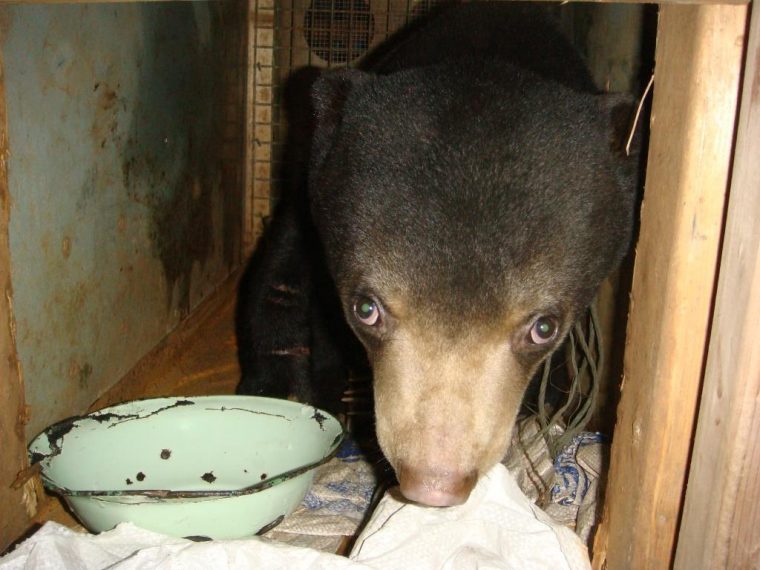
When Harry Potter hit screens in 2001, there was a surge in the number of people buying owls to mimic the young wizard’s feathery friend, Hedwig, an arctic owl native to North America and Eurasia.
Two years down the road, sales of clown fish (anemonefish) spiked when Pixar’s Finding Nemo was released, further increasing concerns from animal lovers and activists who fight for the safe sanctuary and well-being of wildlife on a daily basis.

What raised eyebrows was the fact that most of these Fad Pets owners lack the knowledge about wildlife, let alone keeping one at home.
Malaysia Truly Asia
Fast forward today, a Malaysian singer, Zarith Sofia Yasin, made headlines when she was caught for keeping a juvenile sun bear in her Desa Pandan condominium. A few short clips of the bear cub grunting over a window recorded by her neighbours went viral, leading to her arrest.

She was charged with two accounts under the Wildlife Conservation Act 2010 for keeping a protected species without a permit and the latter for keeping it in a non-conducive environment. Listed as “Vulnerable” on the IUCN Red List of Threatened Species, two major threats sun bears face are deforestation and commercial hunting.
A similar case within the same week saw the Wildlife and National Parks Department (Perhilitan) driving its team of enforcers to save a Brahminy Kite, a red-backed sea eagle from illegal captivity in a Subang house. It was later uncovered that the ‘Helang Merah’, the symbol of Langkawi, has been caged for a year. Brahminy Kites are totally protected and anyone in possession can be fined up to RM100,000, jailed up to three years, or both.
No arrest was made.
So What’s New?
It’s not uncommon to know that there are a lot of pet owners out there who disregard the law for the sake of their own pleasure or owning such creatures. That and the fact that it’s so easy to get a hold of these free roam animals makes it difficult for Perhilitan and animal activists to do something about it.
But how easy is easy?
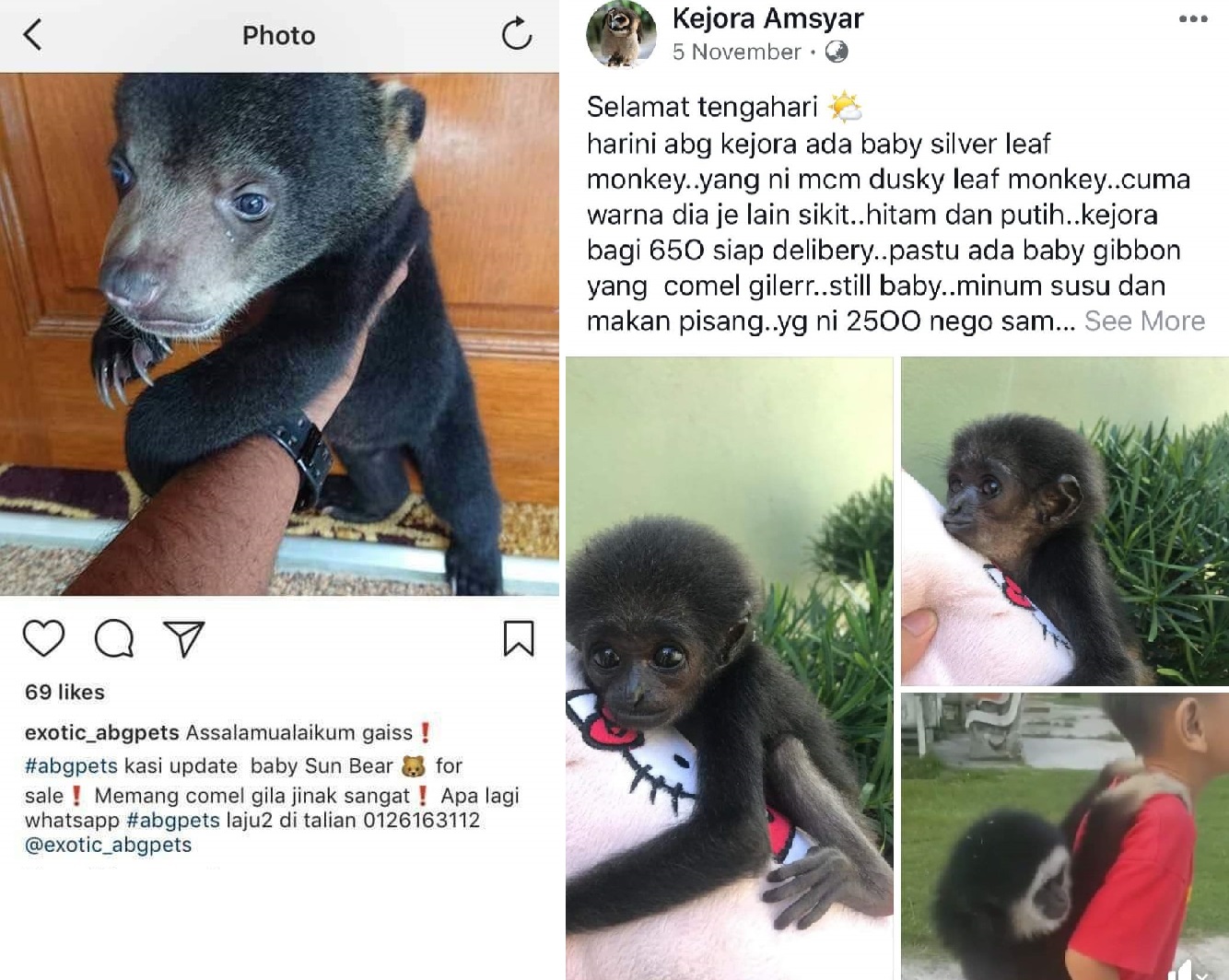
In 2006, it was reported that Brahminy Kites can easily be bought for a mere RM600 from the black market, thanks to social media. It’s so rampant and convenient that with a few keyword searches, one could reach out to any seller to get just about any wildlife online. Other few common exotic ones in trade are the leopard, pangolin, slow loris, crocodile and gharial species.
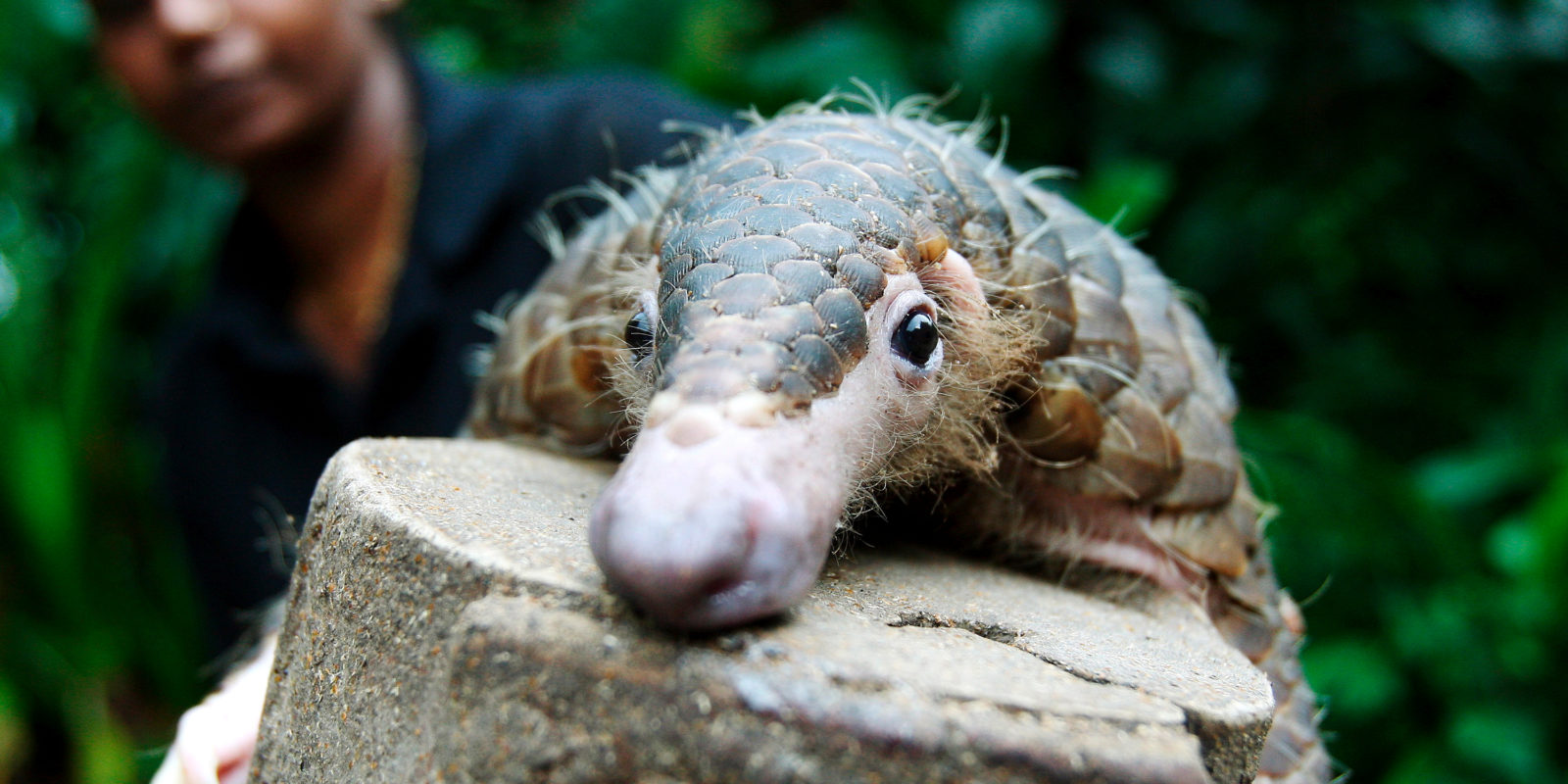
It’s no surprise since the basic demand/supply formula still applies here, and demands for exotic pets have not ceased. TRAFFIC, the wildlife trade monitoring network through its SEA representative, Elizabeth John, disclosed, “The illegal exotic wildlife trade sits in the top 10 most lucrative felony in the world, next to drugs, arms and human trafficking.”
Between 2014 to 2015, the wildlife watchdog uncovered 14 Facebook groups in Peninsular Malaysia alone, trading off iconic and threatened animals from sun bears to binturongs and it’s believed that this illicit ring has taken root in the country, much to the dismay of many.
What’s more worrying is the absolute disregard by the Malaysian public when it comes to wildlife trade, according to Elizabeth.
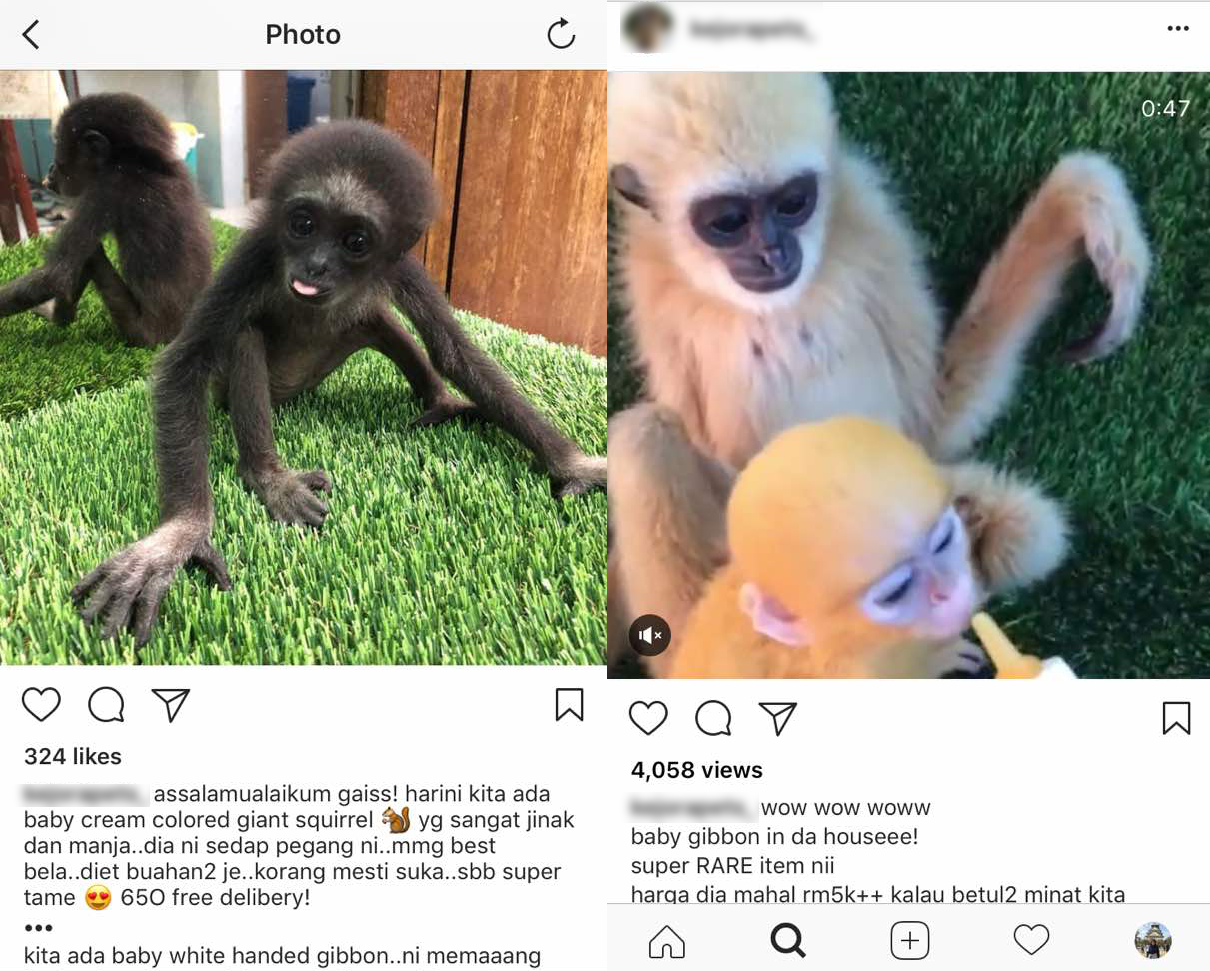
“There seems little concern for how wild pets may have been sourced – if adults were killed to acquire juveniles or if they were stolen from Malaysian forests or another country, stuffed into suitcases and smuggled, countless dying along the way,” she claimed.
True to an extent, the bear cub in the condominium case above may have been stolen from its mother, probably dead from protecting her offspring – What mother wouldn’t?
Lock, Stock & Two Smoking Barrels
Though it’s obvious to point fingers at poachers, re-sellers and even buyers, the real crime is way bigger than what is perceived.
While sellers of small, endangered wildlife may have gotten their ‘supplies’ from local or SEA poachers, it’s the global ring that eats its way through the forest, especially ours. From civets, leopards, tigers and even elephants, there’s only one country that welcomes this vile trade – and its name is China.
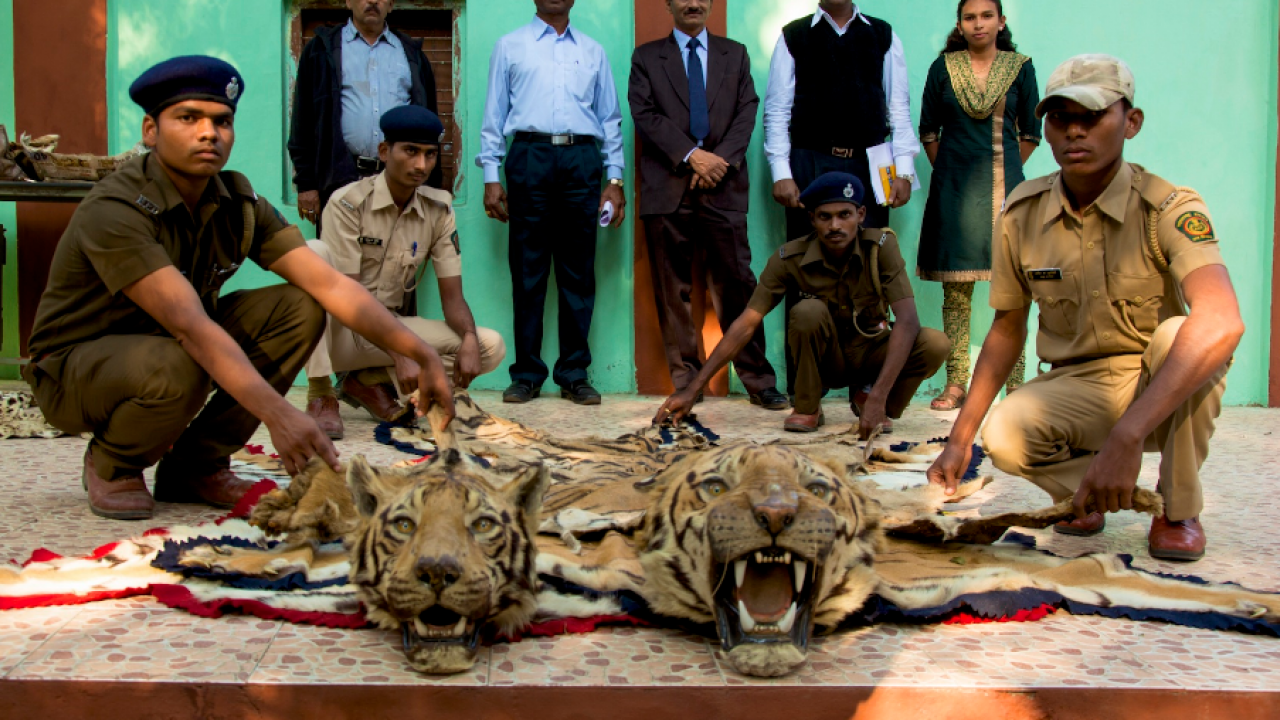
The trade items vary, from the skin, bone, horn, gall bladder, teeth, scale, claw, paw and even testicles, all harvested illegally (and violently) from wild, free-roaming creatures. With reported cases of trade deals happening in the small town of Medan, Indonesia to Mine Lar in Myanmar, there seems to be no stopping this gigantic country from devouring what’s left of the forest, pushing Malaysia, Singapore, Indonesia, Brunei, Thailand and Myanmar to set up a joint management and conservation plan & enforcement to ensure protected and critically endangered species have lives outside the Beijing black market.
Meanwhile in Malaysia, Bornean Sun Bear Conservation Centre’s Dr Wong Siew Te exposed a number of online profiles on Facebook and Instagram selling protected species like they’re nothing. Animals such as honey bear, fox, gibbon, tapir and leopard are being sold without any regards to the law.

Alert The Authorities
When it comes to illegal wildlife trade, your responsibilities lie in your effort to be the eyes and ears for the authorities in charge. In this case, it’s PERHILITAN.
In April, two Vietnamese poachers were caught red-handed in Sungai Tersat, Taman Negara Terengganu for using traps and keeping protected & endangered species like leopard, tapir and sun bear with a total market value of over half a million Ringgit. They were slapped with a RM1.56 million fine each and also 2 years of imprisonment.

I Want These Creatures To Roam Free. What Should I Do?
First of all, equip yourself with knowledge. As the public, we hold little to no power to stop poachers or halt illegal trafficking rings, but we can learn ways to help these animals for the sake of everyone on the planet.
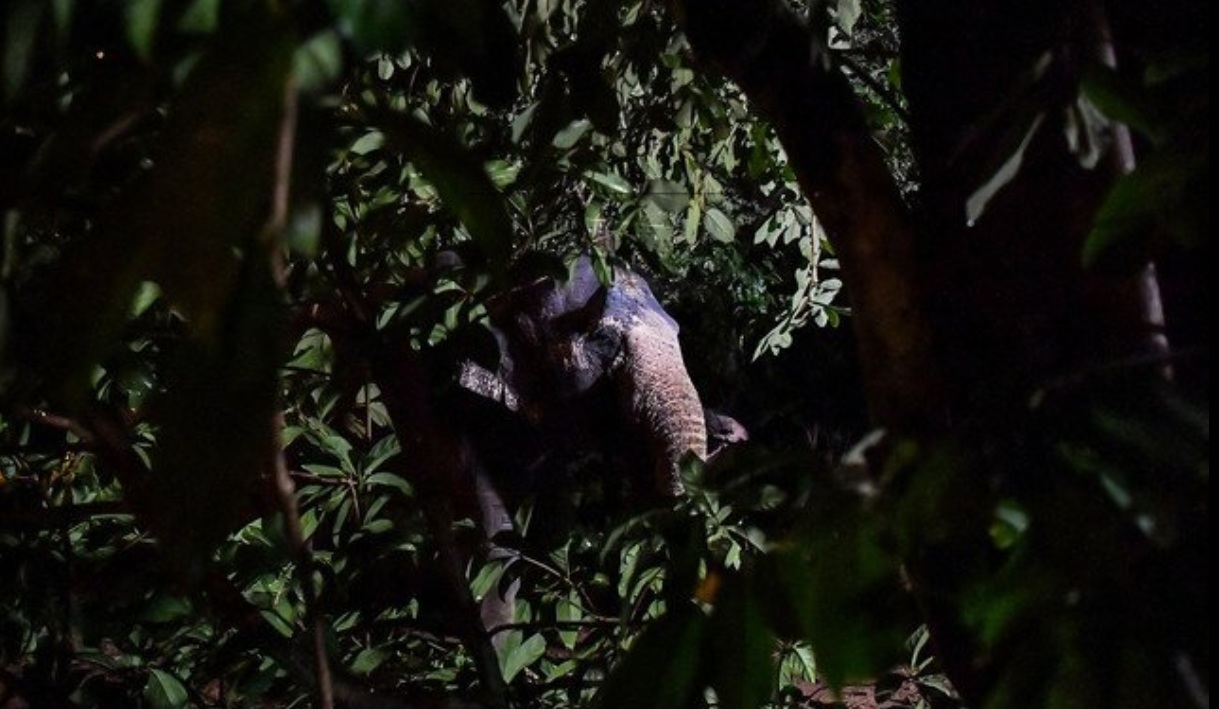
What other ways can you help? See below:
1) Learn The Lingo
Educate yourself and learn the difference between “vulnerable”, “protected” and “critically endangered” species. This way, you will have an alarming sense of concern when you see something wrong.
2) STOP Buying
When the buying stops, the killing can too. It’s a simple theory of how demand creates supply. Supply in this context refer to violent methods of acquiring wild animals, with death usually being the answer.
3) Report Button
We’re not talking about walking up to a PERHILITAN office and reporting an illegal trade you just witnessed while spying on syndicates. We’re talking about that Facebook report button for when you see something amiss. We’re talking about tweeting your concerns to PERHILITAN on Twitter. We’re talking about a practical approach that count as an effort to stop the madness.
4) Peer Pressure
Yes, the next time someone uploads a photo of a clouded leopard or a gharial in a cage, press them to do the right thing. You’d be surprised how ill-informed most people are on the dangers of keeping protected species and fooling around with the law.
5) Call The Cops
While the police may not have jurisdiction on some (or most) cases, the best channel to report anything you find suspicious is to PERHILITAN. Open from 8.00am to 6.00pm, seven days a week, just call the hotline at 1 800 88 5151.
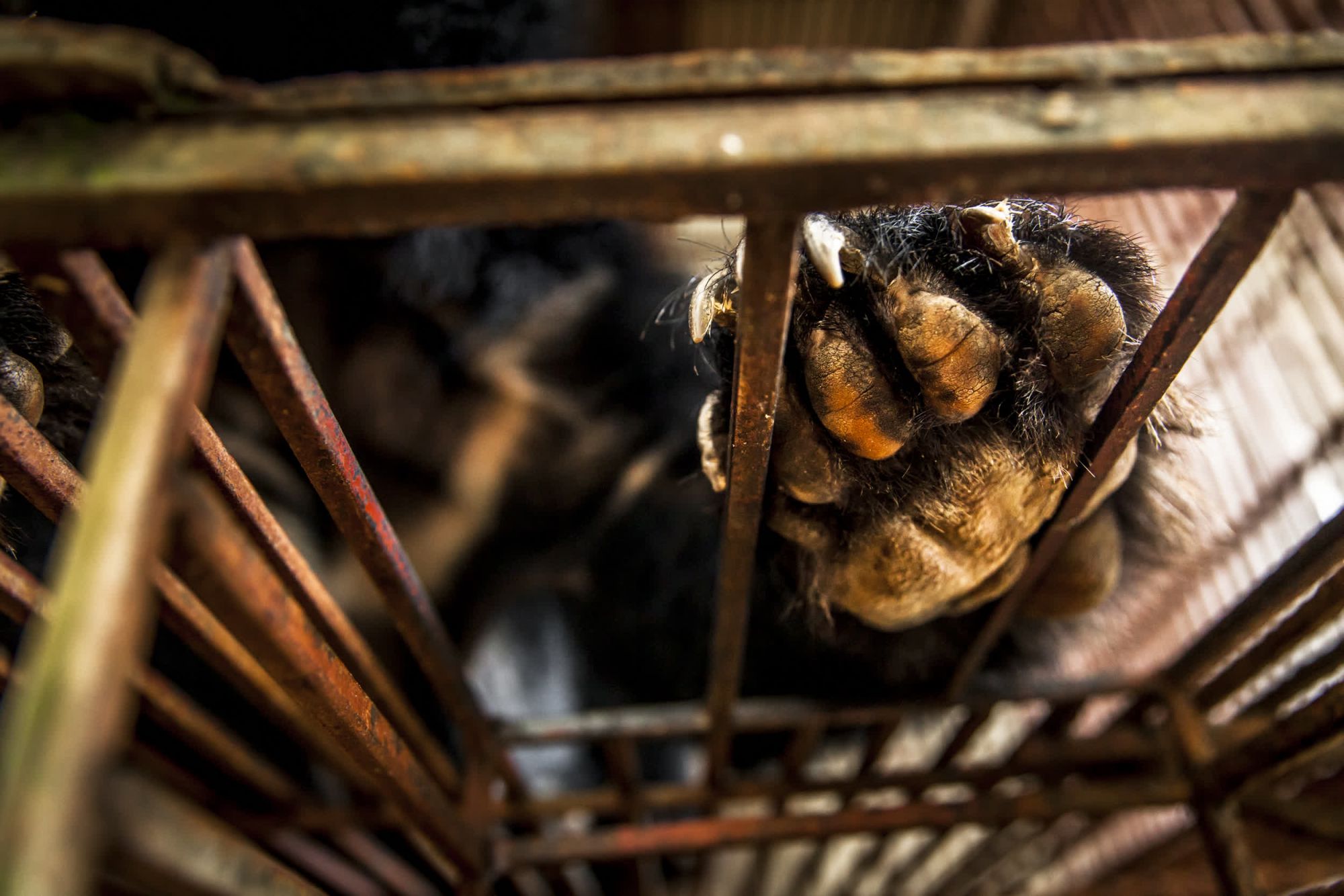
Follow our Facebook and Instagram for more third-person perspectives on everything Malaysian. For the full list of protected and endangered species, click here.
Editor’s note:
In January 2020, the singer has been fined RM27,000 (in total) for two accounts – RM20,000 for keeping the sun bear (Helarctos Malayanus) and RM7,000 for confining the animal, in lieu of four months in jail.Both charges were framed under Section 69 (1) and Section 86 (1) of the Wildlife Conservation Act 2010, punishable under Section 69 (1) of the Act provides a fine of up to RM200,000 or imprisonment of up to 10 years. Zarith initially pleaded not guilty before eventually bowing to a guilty verdict in Sessions Court.








